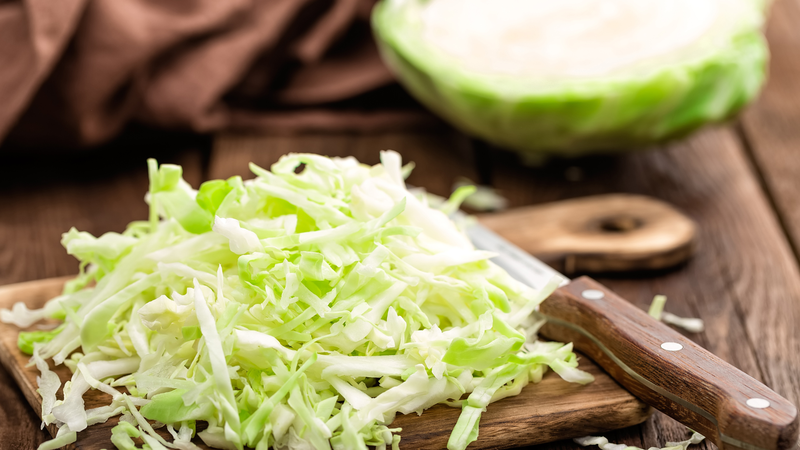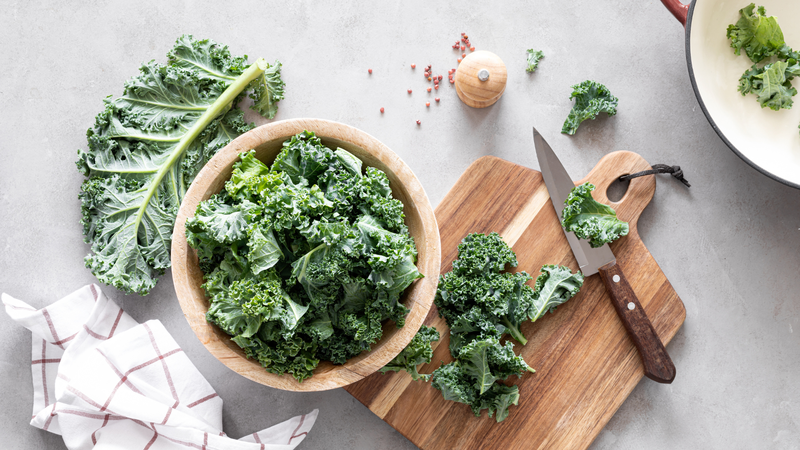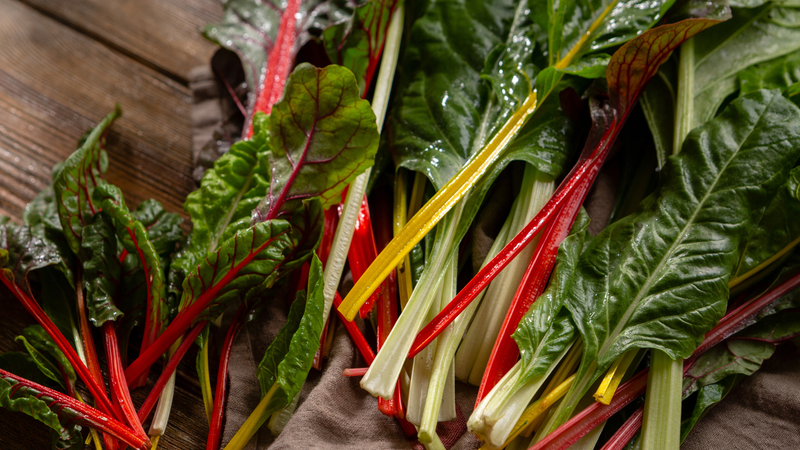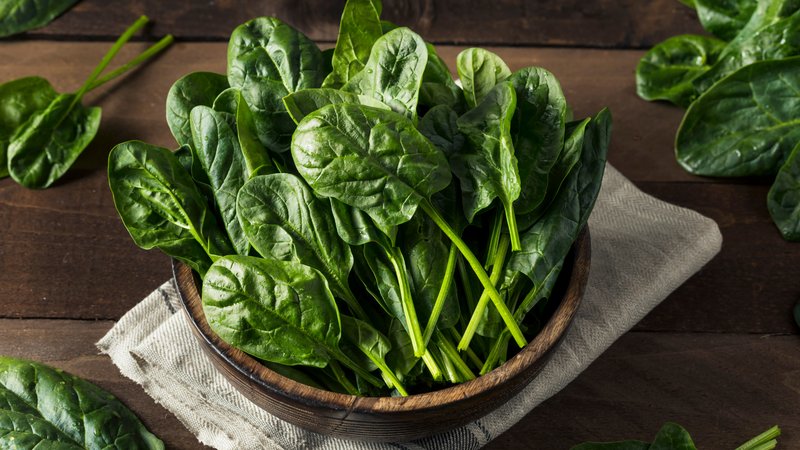Cruciferous vegetables are one of the indispensable foods in our daily meals. With abundant vitamins, minerals and fiber, cruciferous vegetables bring many health benefits. This article will introduce you to a list of popular cruciferous vegetables and the great benefits they bring.
Cruciferous vegetables are one of the most nutritious food groups and bring many health benefits. Known as nature’s “nutritional treasure”, cruciferous vegetables not only provide vitamins and minerals but also have properties that help prevent diseases. Let’s learn in detail about the most popular cruciferous vegetables and why they should be present in your daily diet.
Cabbage – one of the popular cruciferous vegetables
Cabbage is a rich source of vitamin K, fiber, potassium and phosphorus. These nutrients help protect skin health, improve vision and support strong bones. In particular, cabbage contains antioxidant and anti-inflammatory compounds, which help prevent lung cancer and esophageal cancer. In addition, cabbage also helps improve the digestive system thanks to soluble fiber, reducing the risk of constipation and maintaining intestinal health. The variety of cooking methods such as boiling, stir-frying, or pickling helps cabbage become a familiar dish in many family meals.

Cabbage is one of the most popular vegetables.
Watercress
Watercress is known for its high content of antioxidants such as lutein, zeaxanthin and beta-carotene. These compounds not only protect the eyes from problems such as cataracts and macular degeneration but also help improve heart health.
In addition, watercress has the effect of reducing bad cholesterol and increasing good cholesterol in the blood. This reduces the risk of cardiovascular diseases. Using watercress in salads, soups or smoothies is a great way to get the most benefits from this vegetable.
Broccoli
Broccoli is rich in vitamins B, C, K, fiber and antioxidants. This vegetable is especially beneficial in reducing inflammation, controlling blood sugar levels and supporting women’s health. The bioactive compounds in broccoli help slow down the aging process of the brain, preventing memory loss syndrome.
In addition, broccoli also supports liver detoxification thanks to its sulforaphane content – a compound that enhances the body’s ability to eliminate toxins. To preserve its nutritional value, you should prepare broccoli by steaming or lightly boiling it.
Kale
Kale is a popular “superfood” because it is fat-free and low in calories. This type of cabbage is rich in fiber, which helps improve digestion, reduce bad cholesterol and maintain bone health. Kale also helps induce good sleep thanks to its natural magnesium content.
In addition, kale is rich in vitamins A, C, and K – essential nutrients to strengthen resistance and beautify the skin. This is an ideal ingredient for smoothies, salads or nutritious soups.

Kale is a popular “superfood”
Bok Choy
Bok choy is rich in protein, fiber, and important vitamins such as C, B6, and E. This vegetable not only aids digestion but also helps control weight thanks to its ability to reduce cravings.
In particular, Bok Choy is very good for the skin thanks to its beta-carotene and vitamin E content, which helps keep the skin smooth and healthy. In addition, Bok Choy also contains folate – an essential nutrient for pregnant women, helping to reduce the risk of birth defects.
Brussels sprouts
Brussels sprouts are small in size but are full of health-promoting compounds such as kaempferol – a powerful antioxidant. Research shows that kaempferol helps protect cells from damage caused by free radicals, while reducing the risk of chronic diseases.
This type of cabbage also supports the body’s detoxification process and reduces the risk of colorectal cancer. Brussels sprouts are an excellent source of vitamins K, A, C, folate, and manganese, which are very good for overall health.
Swiss Chard
Low in calories but rich in vitamins and minerals, Swiss chard is an ideal choice for those who want to maintain their weight. This vegetable is rich in antioxidants, which help reduce blood sugar levels and protect the liver and kidneys from complications caused by diabetes.
An animal study showed that Swiss chard extract has the ability to prevent cell damage and improve diabetes. Adding Swiss chard to your daily diet will help improve your overall health.

Swiss chard is rich in antioxidants.
Red Cabbage
Red cabbage stands out for its beautiful color and high content of anthocyanins – antioxidants that can protect the heart and reduce inflammation. According to research, red cabbage can lower cholesterol and prevent liver damage caused by an unhealthy diet.
The vitamin C content in red cabbage helps boost immunity and brighten the skin. You can use red cabbage in salads, soups or pickles to take advantage of its nutritional benefits.
Basilica
Basilica is a rich source of calcium and fiber, which is good for bones and the digestive system. This vegetable is also rich in antioxidants, which help reduce the risk of glaucoma and other vision problems.
A serving of cooked basil provides 27% of the daily calcium requirement – an important nutrient to prevent osteoporosis. Basil is often used in soups or stir-fries, providing a rich and nutritious flavor.
Spinach
Spinach is a vegetable rich in iron and B vitamins, which help increase energy and improve blood quality. However, the high oxalic acid content in spinach can hinder iron absorption. To overcome this, you should cook spinach lightly or combine spinach with foods rich in vitamin C.
In addition, spinach is also rich in folate – a substance necessary for pregnant women and prevents birth defects.

Spinach is a vegetable rich in iron and B vitamins.
Cabbage
Cabbage is one of the most commonly used vegetables, sweet, cool, and rich in vitamins A, C, and E. This vegetable helps to cool down, reduce gas, and improve digestion. Cabbage is also rich in zinc – an important trace element for the immune system and skin health.
Cooking cabbage into soups or kimchi will help enhance taste and nutrition.
Sweet cabbage
Sweet cabbage has a light taste, is rich in vitamin C and calcium, supports strong bones, and increases resistance. This vegetable also has the effect of purifying the body, reducing the risk of cardiovascular disease and diabetes.
Cabbage is an indispensable source of nutrition in daily meals. Each type of cabbage brings its own health benefits, from improving digestion, enhancing eyesight, to supporting the cardiovascular system and reducing the risk of chronic diseases. Adding a variety of cabbages to your diet will help you maintain good health and prevent many diseases. Take advantage of these amazing benefits and start building a healthy diet today!





